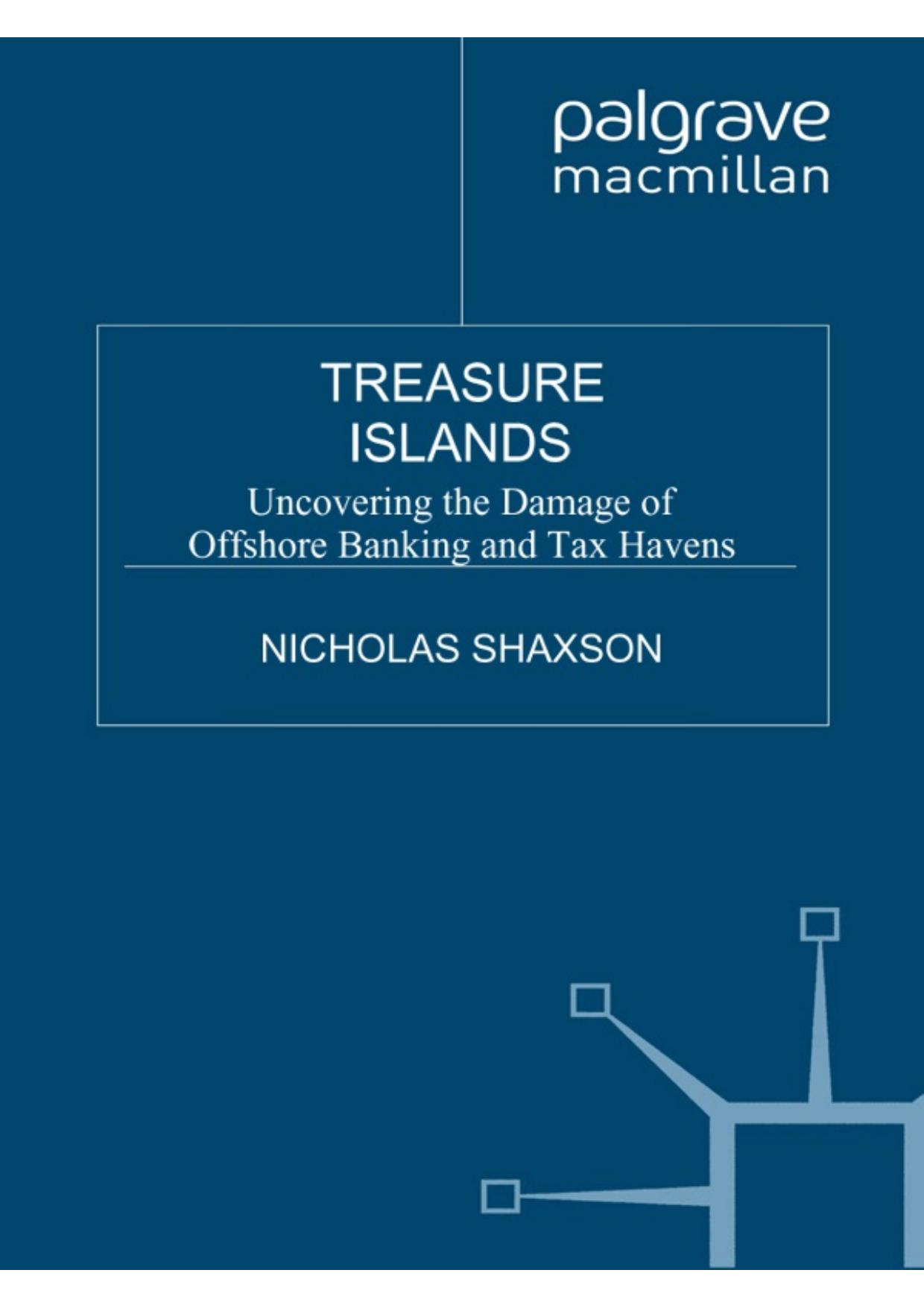Treasure Islands by Nicholas Shaxson

Author:Nicholas Shaxson
Language: eng
Format: mobi, pdf
Publisher: Palgrave Macmillan
Published: 2011-02-12T10:00:00+00:00
In February 2003 Phil Gramm, a former Republican Texan senator who became vice chairman of the Swiss investment bank UBS Warburg, wrote to U.S. treasury secretary John Snow, arguing against a plan to increase international financial transparency. “This proposal will limit economic freedom,” he wrote, “and reduce the pressure that potential capital flight imposes on high-taxing countries worldwide.”29 Illicit flows are good, Gramm was effectively saying, because it disciplines the victims.
Anyone who understands that there is a difference between wealthy rulers, who are the beneficiaries of illicit flows, and ordinary citizens, who are the victims, can see through Gramm’s position. Yet in whole sectors of the Western economics profession, such thinking has become almost an article of faith founded on the ageless blame-the-victim accusations that the losers are stupid, are corrupt, or just didn’t flagellate themselves hard enough.
Jim Henry, a former chief economist for McKinsey’s who is almost alone in having investigated this globally since the 1980s, sees the conventional roots of the global development crisis as “an economist’s fairy tale…. It leaves out all the blood and guts of what really happened.” Henry’s 2003 book Blood Bankers explores a number of shocking episodes where offshore banking led to crisis after crisis in low-income countries. First, bankers lent these countries far more than they could productively absorb; then they taught local elites the basics of how to plunder their countries’ wealth, then conceal it, launder it, and sneak it offshore. Then the IMF helped bankers pressure these countries to service their debts under threat of financial strangulation. Capital markets were deliberately opened up to foreign capital, according to Henry, “whether or not there were adequate security laws, bank regulations or tax enforcers in place.”
He tracked down an American banker from MHT Bank who took part in a friendly private audit of the Philippines central bank in 1983. “I sat in a hot, little room at the Central Bank, added up what the Central Bank showed it had received from us on its books, and compared it with our disbursements,” the banker told Henry.30 “And nearly $5bn was just not there! I mean, it had just not come into the country. It had been disbursed by us, but it was completely missing from the Central Bank’s books. It turned out that most of these loans had been disbursed to account numbers assigned to Philippine offshore banking units or other private companies. Apparently, the Central Bank gave MHT the account numbers, and we never questioned whether they were Central Bank accounts—we just wired the loans to them. And then they disappeared offshore.”
Philippine officials realized what he was up to, and the following morning the banker got a big breakfast in his hotel room, courtesy of the management. Fortunately for him, he only had time to grab a bite of toast before heading to the airport. By the time he reached Tokyo he was sick, and on the flight home he went into convulsions and spent three days in a Vancouver hospital recovering from what the doctors said was “an unknown toxin.
Download
This site does not store any files on its server. We only index and link to content provided by other sites. Please contact the content providers to delete copyright contents if any and email us, we'll remove relevant links or contents immediately.
Harry Potter and the Goblet Of Fire by J.K. Rowling(3045)
Never by Ken Follett(2880)
Shadow of Night by Deborah Harkness(2718)
Ogilvy on Advertising by David Ogilvy(2682)
Zero to IPO: Over $1 Trillion of Actionable Advice from the World's Most Successful Entrepreneurs by Frederic Kerrest(2393)
The Man Who Died Twice by Richard Osman(2298)
Machine Learning at Scale with H2O by Gregory Keys | David Whiting(2291)
Book of Life by Deborah Harkness(2263)
How Proust Can Change Your Life by Alain De Botton(2261)
My Brilliant Friend by Elena Ferrante(2223)
0041152001443424520 .pdf by Unknown(2220)
The Tipping Point by Malcolm Gladwell(2204)
How to Pay Zero Taxes, 2018 by Jeff A. Schnepper(2099)
Will by Will Smith(2041)
Purple Hibiscus by Chimamanda Ngozi Adichie(1981)
Hooked: A Dark, Contemporary Romance (Never After Series) by Emily McIntire(1959)
Borders by unknow(1785)
Rationality by Steven Pinker(1765)
Daughter of Smoke and Bone by Laini Taylor(1744)
